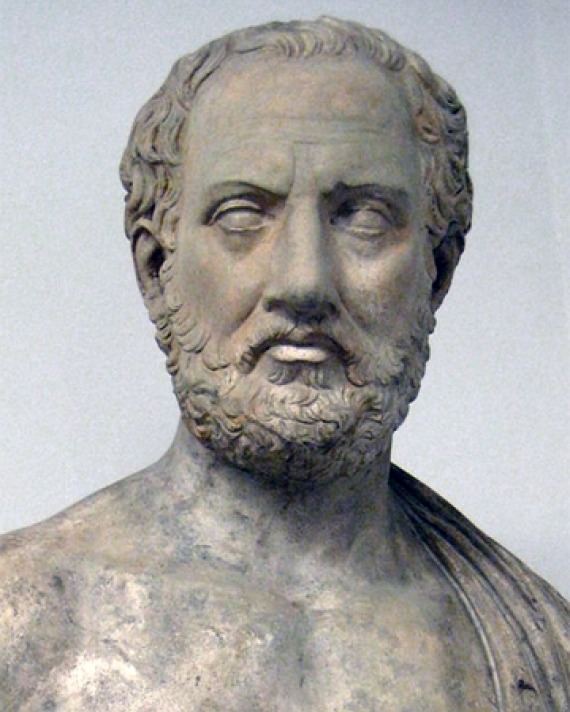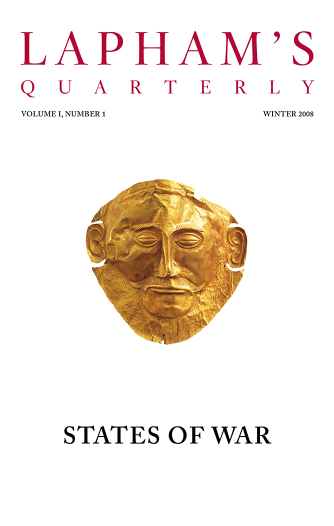
Thucydides
(c. 460 BC - c. 404 BC)
While serving as a general, Thucydides failed to prevent the Spartan capture of Amphipolis in 424 bc, a mistake for which he was exiled from Athens. He spent the next twenty years on his family estate in Thrace, where he assembled his History of the Peloponnesian War, the first political analysis of war known to have been written. “It may well be that my history will seem less easy to read because of the absence in it of a romantic element,” he wrote at the opening of the work. In 1888 Friedrich Nietzsche declared, “There is no more radical cure than Thucydides for the lamentably rose-colored idealization of the Greeks.”






